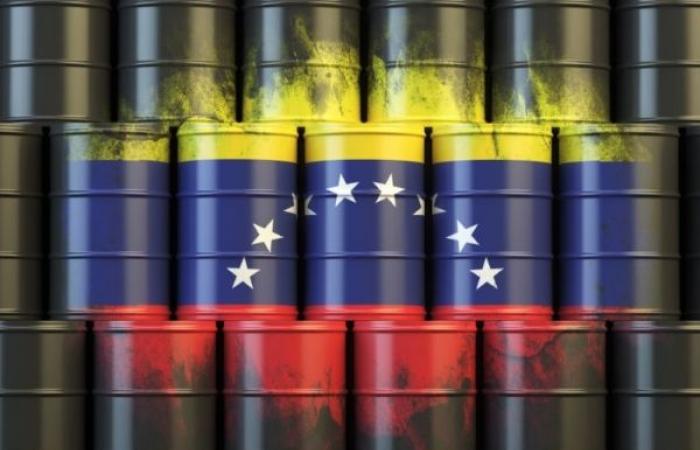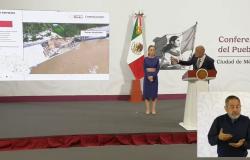during her recent visit to Beijing, the Executive Vice President, Delcy Rodríguez, asked the Chinese authorities to intensify oil purchasessince the country seeks to anticipate the exit ordered by the United States of the Chevron oil company and other foreign energy operators next month.
Rodríguez, who is also in charge of the Ministry of Hydrocarbons, met with the Chinese vice president, Han Zheng, and the president of the national Petroleum Corporation of China, Dai Houliang, in Beijing on Thursday and Friday of last week, according to Chinese state media.
During the meetings, Rodríguez asked China to increase oil purchases and will help supply the diluent and light crude necessary to process and export Venezuelan oil, similar to tar, according to people informed about it.
China, the largest creditor in Venezuela, seeks to renegotiate the terms of its contracts, requesting an even greater discount on oil purchases, according to some sources.
Venezuela is in an increasingly vulnerable position, since the US president, Donald Trump, is sightd by oil, which constitutes an important source of income for the government, as part of his effort to increase the pressure on the government of Nicolás Maduro.
Trump, who considers Maduro an “extraordinary threat” for American national security, has imposed tariffs on countries that import oil from the South American nation, which has become even more delicate negotiations with allies such as China. He has also revoked licenses to foreign energy companies operating there, such as Chevron, Repsol, Eni and Maurel & Prom.
The press officials of the Presidency of Venezuela and Petroleos de Venezuela SA (PDVSA) did not respond to the requests for comments on the visit of the Minister of Hydrocarbons to the Asian Nation. The Ministry of Foreign Affairs in Beijing also did not respond to a request for comments on the demands of both parties. China is currently in its annual public holiday on May 1.
Asia’s largest economy was already the main Venezuelan oil buyer last month, with 10 oil tankers who transported an average of 461,000 barrels per day to the processors, according to customs and maritime transport data in the United States.
Between 5% and 10% of these exports are already allocated to the payment of debtaccording to sources familiar with the subject. Public data support the estimates that Beijing awarded more than 60,000 million dollars in loans backed by oil to Venezuela through state banks until 2015, reaching an unprecedented diplomatic and financial and financial investment level in Latin America and perhaps in the world.
China became a key lender for Venezuela in 2007, when it provided funds for the first time for infrastructure and oil projects during the presidency of Hugo Chávez.
“We are reaching a new level with the agreements that we are going to sign, some of which were already signed there,” Rodriguez said in a televised broadcast next to Maduro on Monday. “It is a reserved agenda that we cannot mention, it is confidential.”
“I can tell you that we are extremely happy with this tour of China, to be able to reaffirm our friendship, transmit your message and present a new concrete work agenda,” he added.
The Venezuelan economy is already feeling the consequences of American maximum pressure policy, with devaluation of the currency in the expectation of a massive shortage of dollars. The consequences threaten to enliven inflation and undo the economic stabilization that the Maduro government has achieved, in part, by allowing the general use of the dollar.
Tariffs could not have arrived at worse for the country. Oil revenues are essential to supply dollars to the official market.
CNPC, once a key producer in the belt of the Venezuelan Orinoco, has seen the production of its joint venture company 103,000 barrels per day on April 1, according to PDVSA data to which Bloomberg had access. The production is still below the historical levels of 160,000 barrels per day of 2015, indicates a note from the Bloomberg agency.
Read more interesting and current content:
We are one of the main news portals in Venezuela for banking, economic, financial and business issues, with more than 20 years in the market. We have been and we will continue to be pioneers in the creation of content, unpublished analysis and special reports. We have become a reference source in the country and advance step by step in Latin America.
Follow us on our Telegram, Instagram, Twitter and Facebook








